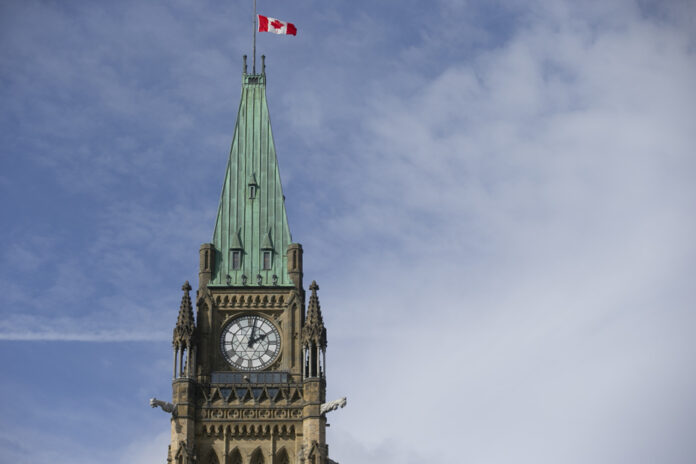(OTTAWA) The Trudeau government is poised to change its approach to modern slavery, promising new legislation that caught the Liberal MP who spearheaded a forced labor bill in parliament off guard.
Toronto MP John McKay worked on Bill S-211, which would update Canada’s laws on forced labor and child labor in supply chains.
The bill is nearing its final stage before becoming law starting this month. It would require Canadian companies and government departments to monitor supply chains, in an effort to protect workers.
Companies should verify that none of their products or components are made in sweatshops employing children or people forced to work excessive hours for free or pittance. Companies should also publish reports.
The bill was first introduced in the Senate by Senator Julie Miville-Dechêne, whose office did not respond to a request for an interview.
Ms Miville-Dechêne has previously warned that products such as coffee, cocoa and sugar cane could be linked to child labor or made in factories in China’s Xinjiang region where members of the Uyghur community are coerced. to work.
The bill has been criticized by the New Democratic Party, the Bloc Québécois and human rights advocates for only imposing a duty to report instead of eliminating child labor.
Oppositions argue that the reporting requirement falls short of the Liberal platform’s commitment “to eradicate forced labor from Canadian supply chains.”
Mr. McKay argues that this is the result of what is politically possible and that the legislation would introduce more transparency in Canada than in many other countries. According to him, consumers and bankers could use the information to put pressure on companies.
“Hopefully with some generation of information, we could move to more onerous laws, where companies that don’t comply face lawsuits,” argued Mr. McKay, who mentioned that his government hadn’t told him what the new bill would entail.
Labor Minister Seamus O’Regan was unavailable for an interview in recent days during the Liberals’ post-budget tour. However, his office said the intention of the new legislation is to create momentum for companies and governments to actually take action when they identify a case of forced labor.
“We are eliminating forced labor from Canadian supply chains,” O’Regan said in a statement. My job is to make sure that we write the most effective legislation possible that not only identifies these assets, but also has the teeth to act on them. This will send a clear message to the world: forced labor has no place in Canada. »
Mr. McKay wants his colleague to table something quickly. “I hope he comes up with everything he has in mind as soon as possible,” he said. It’s clear he wants to do something quite robust, and I’m only encouraging him to do so. »
The Uyghur Rights Project called Bill S-221 “weak legislation.” He argued that Canada already has tools and obligations under the Customs Act to prevent slave-made goods from entering supply chains.
“As other governments make progress in dealing with goods produced through the use of Uyghur forced labor, Canada falls behind,” the group wrote in a March 28 press release.
“The answers to this range from denial of a problem, to the limits of Canadian law, to the lack of access to information,” he added.












